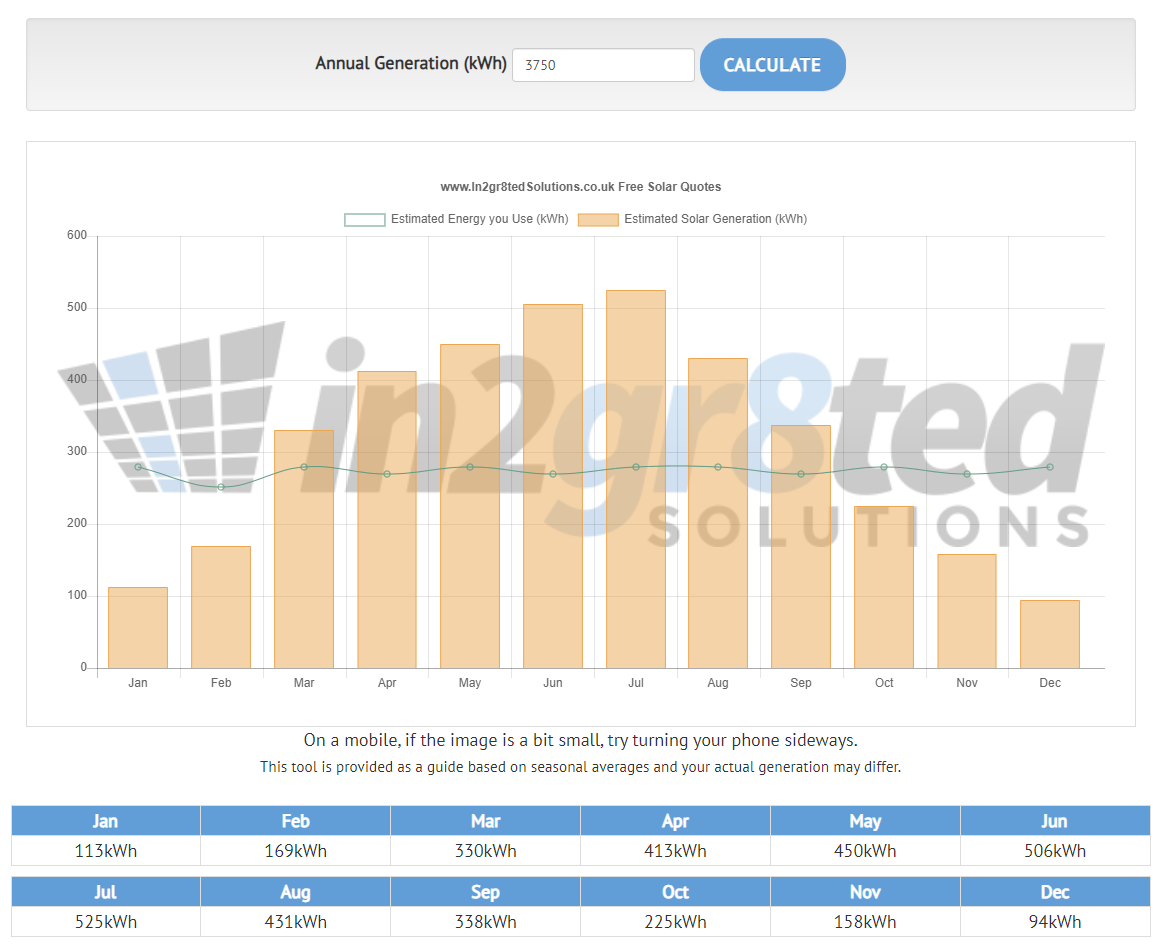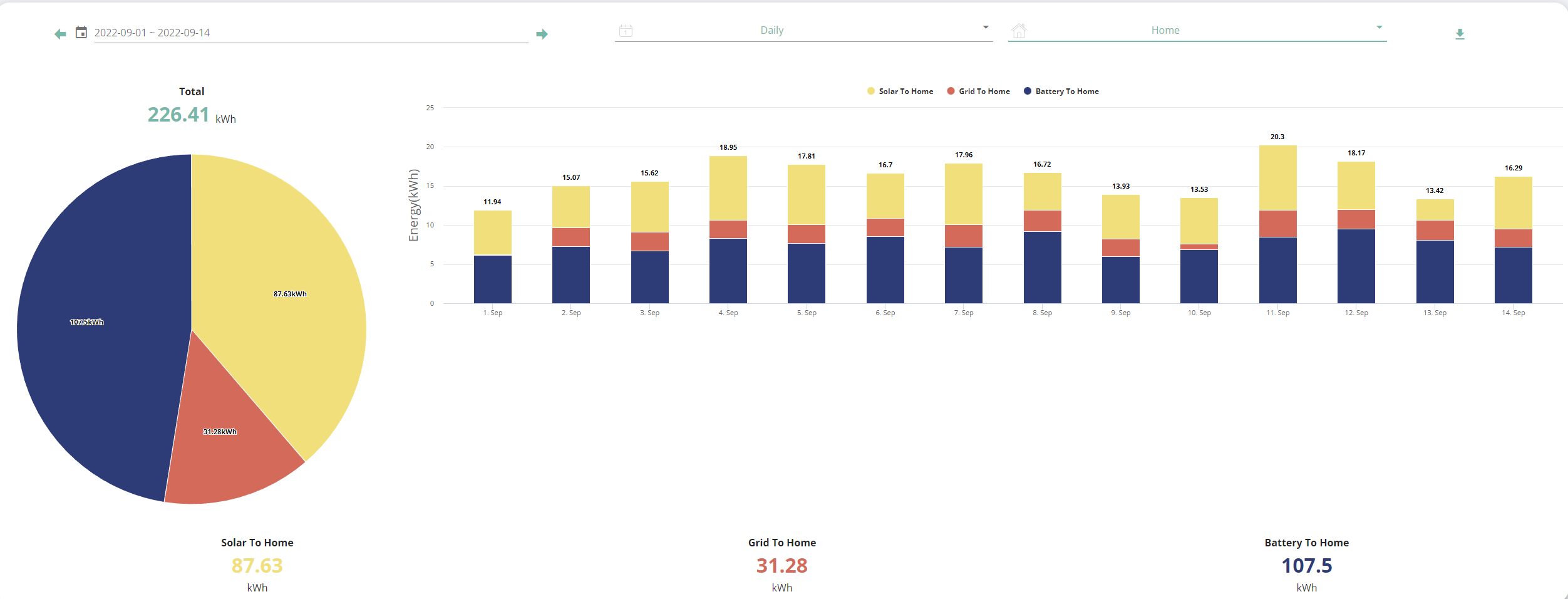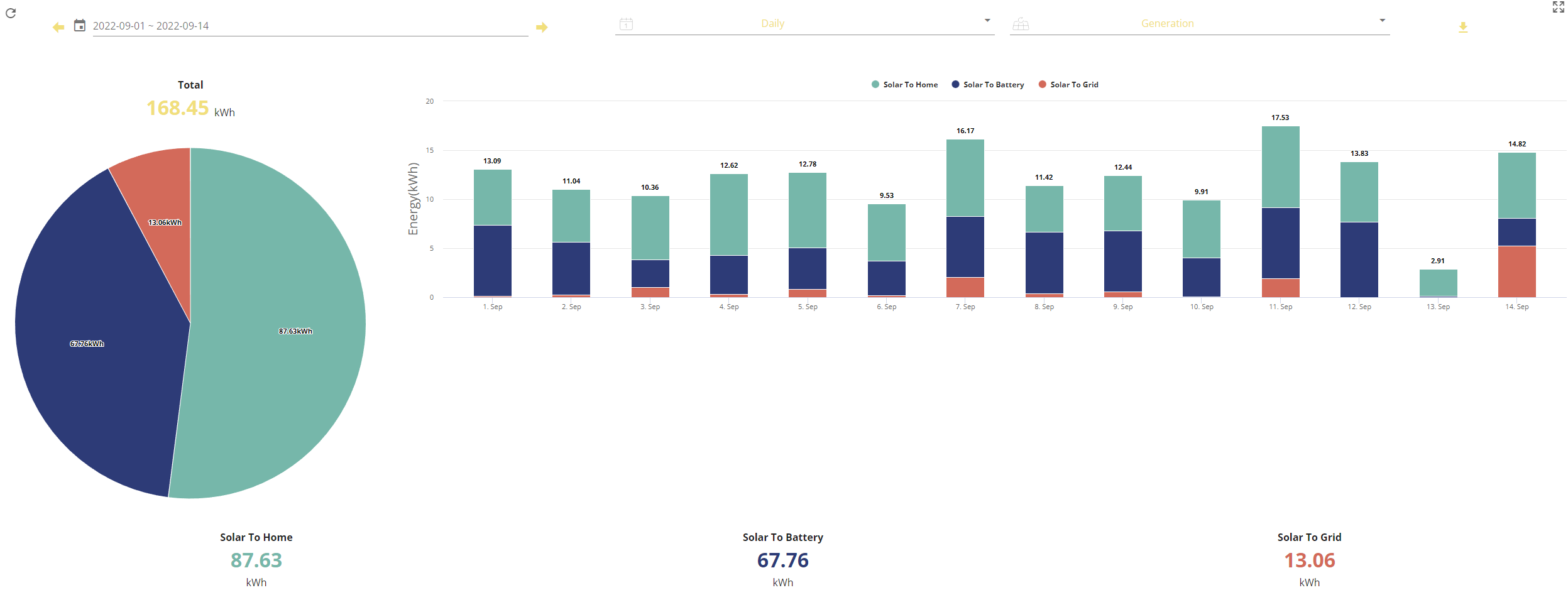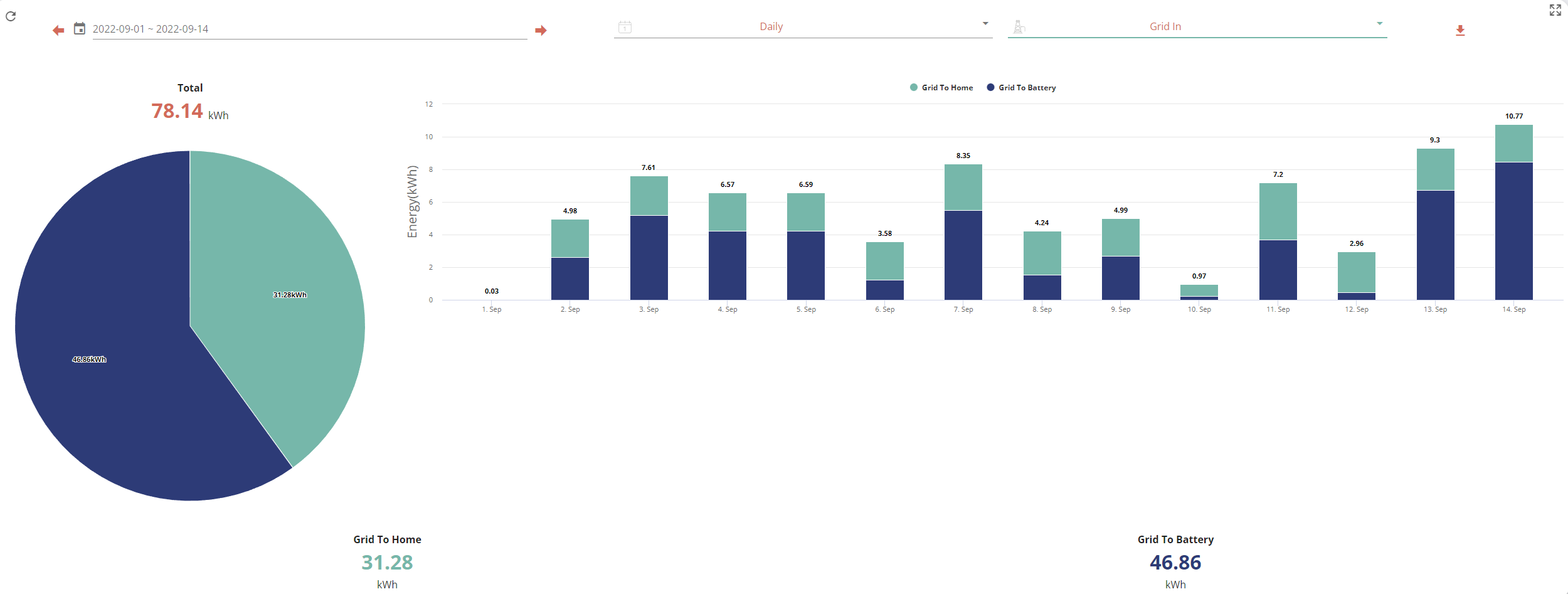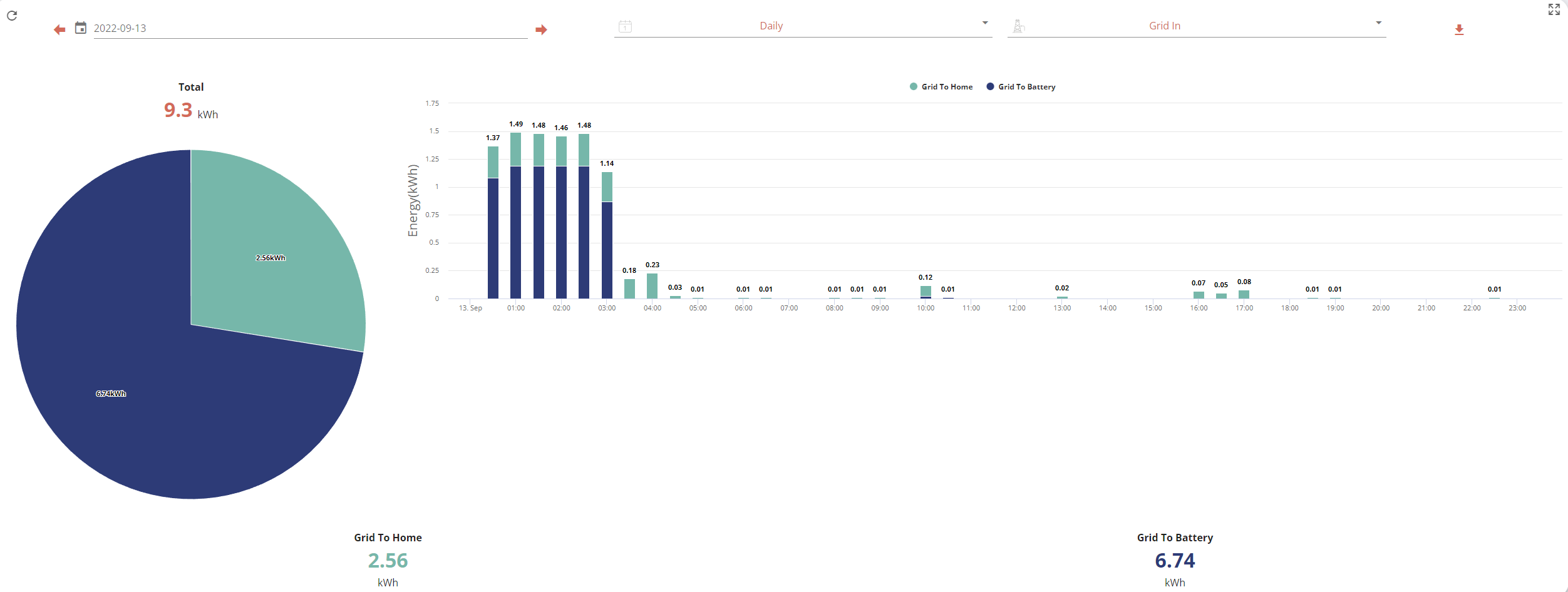Lordhippos
Death Scythe
Following on from my post in the stuff bought thread, I wanted to post more detail without horribly de-railing the main thread.
This is primarily for @Geriatric hedgehog but info/discussion welcome with anyone. Hope you have a nice cuppa tea (I'd highly recommend Twinings Strong English Breakfast or Lady Grey) and some biscuits to accompany reading this post, it could be a long one.
Is it worth getting solar?
In my opinion - yes, if you:
To make it really worthwhile I'd recommend only when your usage is approaching, or above, 3650kwh of electric per year.
How is the generation used?
Any incoming solar generation will power devices currently consuming power. After that, if you have a battery it will store excess there. If that is full, and you have an Eddi or similar for hot water, it will power that, and finally, if the prior list has no capacity, it will send excess to the grid.
So the order of operations is:
Solar Generation => House Consumption => Battery Storage => Eddi/Hot Water tank heater => Grid Export
Is selling Energy to the grid profitable?
Currently, no, not really. This is like the energy crisis in reverse, solar net exporters are essentially being stitched up by poor rates.
The old Feed In Tariff (FIT) system was abolished some years ago, and has been replaced with Solar Export Generation (SEG). SEG payments from most providers are in the region of 4p - 6p per kwh exported to the grid. For this reason it's best to use whatever you can. They then turn around and sell that for 28p/kwh to someone else, presently.
Octopus Agile Outgoing is fairly good though, and I'd recommend it if you have a smart meter over basically any other export tariff.
Interesting side note: you can have SEG with any provider, you don't need to use your current one.
Are any planning permissions required or other applications?
Installing a reasonable system on a pitched roof at home is typically going to fall under "permitted development" in the UK. There are some rules for that, but I'd recommend discussing with installer. Any install on a flat roof is likely going to need a planning application.
If your system is capable of exporting more than 3.68kw to the grid, you'll need a G99 DNO (District Network Operator - in my case SSE) application, which installer should handle. This took SSE 3 months to approve, and work can't be done until it's approved.
If your system is less than 3.68kw export capacity then a G98 is required, which is auto-approved and needs to be notified by the installer to the DNO after the fact.
How much does solar cost/what is expected ROI?
A basic panel only system for approximately 4kwp (4KW peak) is likely to set you back in the region of £5K at the moment. Panels are pretty good these days, a 400W panel (x 10 for 4kwp) would be fairly common on new installs.
If you add extra likes batteries or hot water diverters, these can add to the cost. I've seen quotes for larger systems with a battery or two, and they can be approaching £15K with extras above and beyond. Such expensive systems are more tailored to larger dwellings with more demand though.
I would budget £5K - £15K depending on requirements.
ROI is likely still measured in years, I'm estimating 5-8 year ROI for my system, in my circumstances. There is also an opportunity cost here, you could instead pay market rates for energy and invest the money, so spending all at once on solar means you lose that compounding investment potential.
How much does the roof matter?
The very best roof direction for solar is South facing. East or West can also work OK, but North is not recommended.
Commercial solar farms actually often prefer E/W because it gives a longer duration of generation, with less peak output, but allows for panels to be set back to back like this (but with less of an angle): \/\/\/\/\/\/\/\/\/\/
The roof condition is also important. If your roof is falling apart, I would not recommend adding panels, they weigh a lot, and are not meant to be moved for years.
The rail kits actually bolt through the tiles to the roof trusses, so if your roof is in good condition, the panels shouldn't be going anywhere.
What about shading or limited good weather?
The cheapest/most common panel installation mode is string, this means all of the panels in the same string operate as one unit, one panel getting shaded will impact the output of all of them in the same string. I have two strings (one of 6 panels, one of 7).
If your roof has some degree of shading, you may need to add optimisers for some of the panels. These allow shaded panels to operate shaded without impacting performance of other panels. These will up the cost per panel slightly, and it's also one more thing that can go wrong or break.
It's worth noting that panels operate pretty well even in good ambient light, the intensity of light is a factor, and being in sunlight is best, but as long as it's bright outside, the panels will generate something.
Will Solar panels pay for all of my Electric costs?
The long and short answer is no. If you work out how much power you need per year, and get a system that can reasonably meet that requirement, the problem becomes one of timing. In the summer you will generate additional power, potentially to a point where you can't use it quick enough. In the winter, a poor day will basically do nothing.
Estimations on this basis would suggest that for 8 or 9 months of the year, it should produce a good level of energy if sized well.
Standing charge is also required, which is a fixed cost, you can't really go off-grid with just Solar because you need the grid in the darker months.
Is a battery a good idea?
Right now, Solar installations are 0% VAT rated. If you buy a battery with a solar install it's also 0% VAT.
If you get panels for now and decide to buy the battery later, the battery would be charged at 20% VAT.
A large enough battery to reasonably tide your usage over between "solar shifts" can be a good idea, as you can store excess energy instead of exporting to the grid. Battery adds some flexibility into things as you don't need to turn that washing machine on the moment the sun comes out.
You can theoretically install a battery without solar panels, or panels with no battery, or both. There are some scenarios where the battery alone is a better idea than panels, for example if you have an EV and are on the Octopus Go tariff, you can charge the battery up overnight for as little as 7.5p/kwh.
Cons of a Solar system
Some cons I think I may come across include:
I'll try and sum up some important points here:
My stats
These have only been running for about a week, but some headline stats to show impact so far, for 7 days.
Parameters
My average expected/typical usage: 12-16 kwh per day
Stats period (7 days): 31/08 - 06/09
Current cap pricing: £0.28 per kwh
Consumption
Total Consumption: 110.77 kwh
Average Consumption: 15.82 kwh per day
Generation
Total Generated : 86.52 kwh
Total Exported: 7.7 kwh
Total Used: 78.82 kwh
Average Generated: 12.36 kwh per day
Average Used: 11.26 kwh per day
Grid Demand
Total Grid demand: 29.48 kwh
Average Grid demand: 4.21 kwh per day
Savings & Efficiency
Generation (Used) to Consumption %: 71.16%
Consumption Cost without Solar: £31.01
Consumption Cost with Solar: £8.25
Savings made: £22.76
Average saving: £3.25 per day
Because we all like charts, can see how the system works with the battery charging on a day like today, where the weather was fairly good if a little rainy at times.
At the start of today, it was at 4% (reserve capacity it ran out late last night). Between 00:30 and 04:30 it charged to 65%.
From there, it powered the house through until the solar kicked in around 07:00. By 09:00 solar was powering the house and also charging the battery. By 15:00 the battery was fully charged and I was unable to find enough things to use the excess power.
18:30 and the solar dies down, battery has been powering everything since then and is down to 73% as of now.
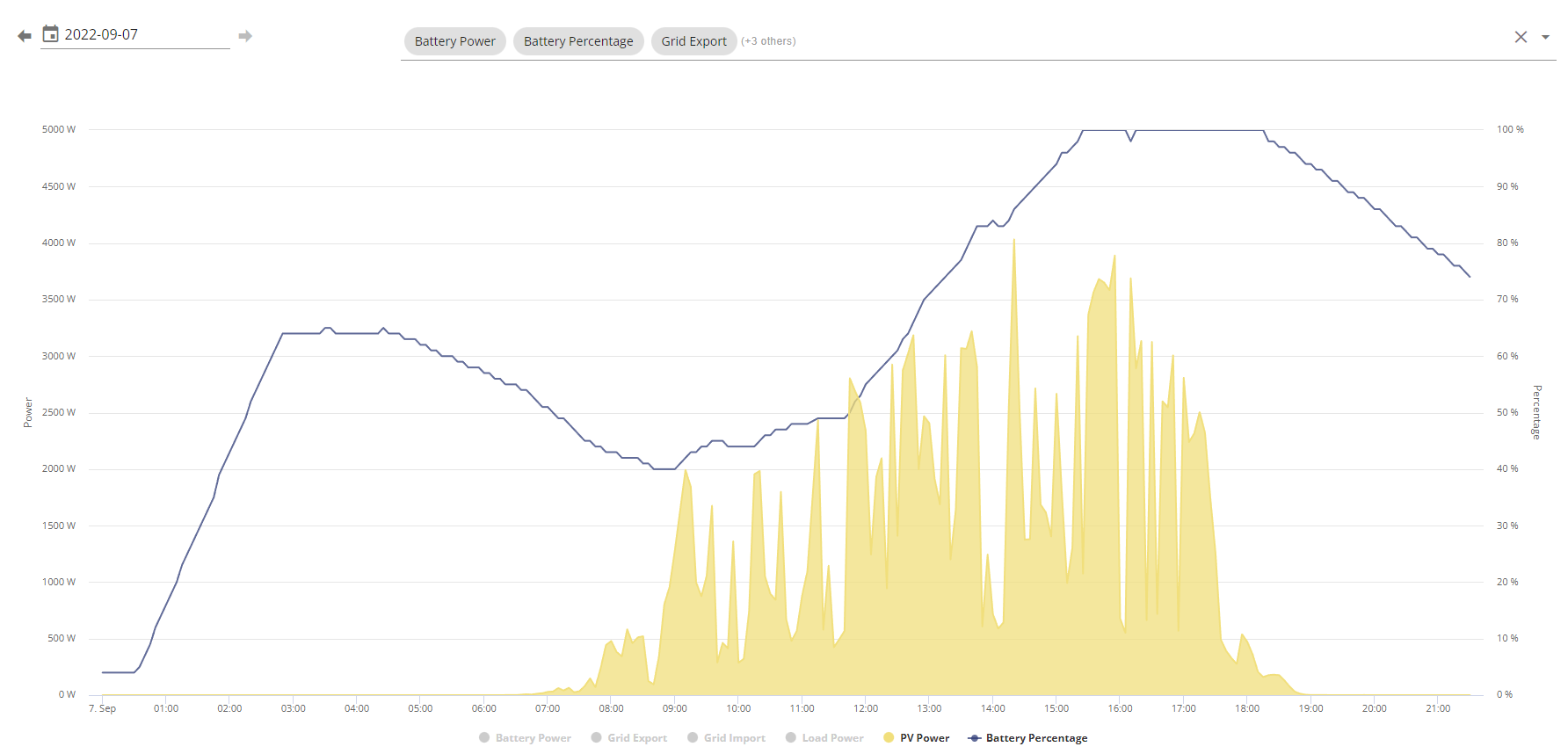
This is primarily for @Geriatric hedgehog but info/discussion welcome with anyone. Hope you have a nice cuppa tea (I'd highly recommend Twinings Strong English Breakfast or Lady Grey) and some biscuits to accompany reading this post, it could be a long one.
Is it worth getting solar?
In my opinion - yes, if you:
- Have the money, or can borrow it via something like a personal loan without stretching finances.
- Use at least a moderate amount of electricity. I'm talking an average of about 10kwh per day or more.
- Install a system no less than about 3.6kwp in size. The more the merrier.
- [Bonus/Optional] If you are at home and can load shift certain things into the day when solar generation is above home consumption.
- [Bonus/Optional] Don't mind spending extra for home battery storage or something like an Eddi that can divert excess solar to hot water immersion heater.
To make it really worthwhile I'd recommend only when your usage is approaching, or above, 3650kwh of electric per year.
How is the generation used?
Any incoming solar generation will power devices currently consuming power. After that, if you have a battery it will store excess there. If that is full, and you have an Eddi or similar for hot water, it will power that, and finally, if the prior list has no capacity, it will send excess to the grid.
So the order of operations is:
Solar Generation => House Consumption => Battery Storage => Eddi/Hot Water tank heater => Grid Export
Is selling Energy to the grid profitable?
Currently, no, not really. This is like the energy crisis in reverse, solar net exporters are essentially being stitched up by poor rates.
The old Feed In Tariff (FIT) system was abolished some years ago, and has been replaced with Solar Export Generation (SEG). SEG payments from most providers are in the region of 4p - 6p per kwh exported to the grid. For this reason it's best to use whatever you can. They then turn around and sell that for 28p/kwh to someone else, presently.
Octopus Agile Outgoing is fairly good though, and I'd recommend it if you have a smart meter over basically any other export tariff.
Interesting side note: you can have SEG with any provider, you don't need to use your current one.
Are any planning permissions required or other applications?
Installing a reasonable system on a pitched roof at home is typically going to fall under "permitted development" in the UK. There are some rules for that, but I'd recommend discussing with installer. Any install on a flat roof is likely going to need a planning application.
If your system is capable of exporting more than 3.68kw to the grid, you'll need a G99 DNO (District Network Operator - in my case SSE) application, which installer should handle. This took SSE 3 months to approve, and work can't be done until it's approved.
If your system is less than 3.68kw export capacity then a G98 is required, which is auto-approved and needs to be notified by the installer to the DNO after the fact.
How much does solar cost/what is expected ROI?
A basic panel only system for approximately 4kwp (4KW peak) is likely to set you back in the region of £5K at the moment. Panels are pretty good these days, a 400W panel (x 10 for 4kwp) would be fairly common on new installs.
If you add extra likes batteries or hot water diverters, these can add to the cost. I've seen quotes for larger systems with a battery or two, and they can be approaching £15K with extras above and beyond. Such expensive systems are more tailored to larger dwellings with more demand though.
I would budget £5K - £15K depending on requirements.
ROI is likely still measured in years, I'm estimating 5-8 year ROI for my system, in my circumstances. There is also an opportunity cost here, you could instead pay market rates for energy and invest the money, so spending all at once on solar means you lose that compounding investment potential.
How much does the roof matter?
The very best roof direction for solar is South facing. East or West can also work OK, but North is not recommended.
Commercial solar farms actually often prefer E/W because it gives a longer duration of generation, with less peak output, but allows for panels to be set back to back like this (but with less of an angle): \/\/\/\/\/\/\/\/\/\/
The roof condition is also important. If your roof is falling apart, I would not recommend adding panels, they weigh a lot, and are not meant to be moved for years.
The rail kits actually bolt through the tiles to the roof trusses, so if your roof is in good condition, the panels shouldn't be going anywhere.
What about shading or limited good weather?
The cheapest/most common panel installation mode is string, this means all of the panels in the same string operate as one unit, one panel getting shaded will impact the output of all of them in the same string. I have two strings (one of 6 panels, one of 7).
If your roof has some degree of shading, you may need to add optimisers for some of the panels. These allow shaded panels to operate shaded without impacting performance of other panels. These will up the cost per panel slightly, and it's also one more thing that can go wrong or break.
It's worth noting that panels operate pretty well even in good ambient light, the intensity of light is a factor, and being in sunlight is best, but as long as it's bright outside, the panels will generate something.
Will Solar panels pay for all of my Electric costs?
The long and short answer is no. If you work out how much power you need per year, and get a system that can reasonably meet that requirement, the problem becomes one of timing. In the summer you will generate additional power, potentially to a point where you can't use it quick enough. In the winter, a poor day will basically do nothing.
Estimations on this basis would suggest that for 8 or 9 months of the year, it should produce a good level of energy if sized well.
Standing charge is also required, which is a fixed cost, you can't really go off-grid with just Solar because you need the grid in the darker months.
Is a battery a good idea?
Right now, Solar installations are 0% VAT rated. If you buy a battery with a solar install it's also 0% VAT.
If you get panels for now and decide to buy the battery later, the battery would be charged at 20% VAT.
A large enough battery to reasonably tide your usage over between "solar shifts" can be a good idea, as you can store excess energy instead of exporting to the grid. Battery adds some flexibility into things as you don't need to turn that washing machine on the moment the sun comes out.
You can theoretically install a battery without solar panels, or panels with no battery, or both. There are some scenarios where the battery alone is a better idea than panels, for example if you have an EV and are on the Octopus Go tariff, you can charge the battery up overnight for as little as 7.5p/kwh.
Cons of a Solar system
Some cons I think I may come across include:
- Any changes to the panels may include getting more scaffold put up to get onto the roof again.
- Inverters are the most likely part to fail, and they are not necessarily cheap to replace.
I'll try and sum up some important points here:
- I would only recommend solar if you use a lot of electric, in the region of 10kwh per day or more on average.
- Installation is likely to run £5K - £15K depending on shopping cart.
- When selecting installer, try and get 3 quotes if possible. Check for reputation, examples of previous work etc. Word of mouth is great here.
- Ensure installer is MCS registered, which is the standard for any regulated Solar installation.
- Solar does not entirely pay your electric bills for the year but if used well, should reduce them a lot.
- I'd not recommend installing anything less than a 3.6kwp system due to fixed installation costs.
- G98 or G99 DNO application will be needed depending on export capacity from inverter (G98 for < 3.68kw, else G99).
- Consider adding battery and/or hot water diverter depending on your own figures on repayments.
- Export rates on SEG kind of suck right now. Hopefully it will improve along with retail energy costs.
- Pitch and direction of roof matters, as does condition, and shading from trees/chimneys etc.
- Panels are fairly large for the 400W~ versions, roughly 1.7M x 1.1M, so roof space will also matter.
- Panels lose about 0.5% effectiveness per year, so after 20 years they'll still be around 90% as good as they are on day 1.
- You don't really need to clean them, rain should take care of most things.
My stats
These have only been running for about a week, but some headline stats to show impact so far, for 7 days.
Parameters
My average expected/typical usage: 12-16 kwh per day
Stats period (7 days): 31/08 - 06/09
Current cap pricing: £0.28 per kwh
Consumption
Total Consumption: 110.77 kwh
Average Consumption: 15.82 kwh per day
Generation
Total Generated : 86.52 kwh
Total Exported: 7.7 kwh
Total Used: 78.82 kwh
Average Generated: 12.36 kwh per day
Average Used: 11.26 kwh per day
Grid Demand
Total Grid demand: 29.48 kwh
Average Grid demand: 4.21 kwh per day
Savings & Efficiency
Generation (Used) to Consumption %: 71.16%
Consumption Cost without Solar: £31.01
Consumption Cost with Solar: £8.25
Savings made: £22.76
Average saving: £3.25 per day
Because we all like charts, can see how the system works with the battery charging on a day like today, where the weather was fairly good if a little rainy at times.
At the start of today, it was at 4% (reserve capacity it ran out late last night). Between 00:30 and 04:30 it charged to 65%.
From there, it powered the house through until the solar kicked in around 07:00. By 09:00 solar was powering the house and also charging the battery. By 15:00 the battery was fully charged and I was unable to find enough things to use the excess power.
18:30 and the solar dies down, battery has been powering everything since then and is down to 73% as of now.

Last edited:


